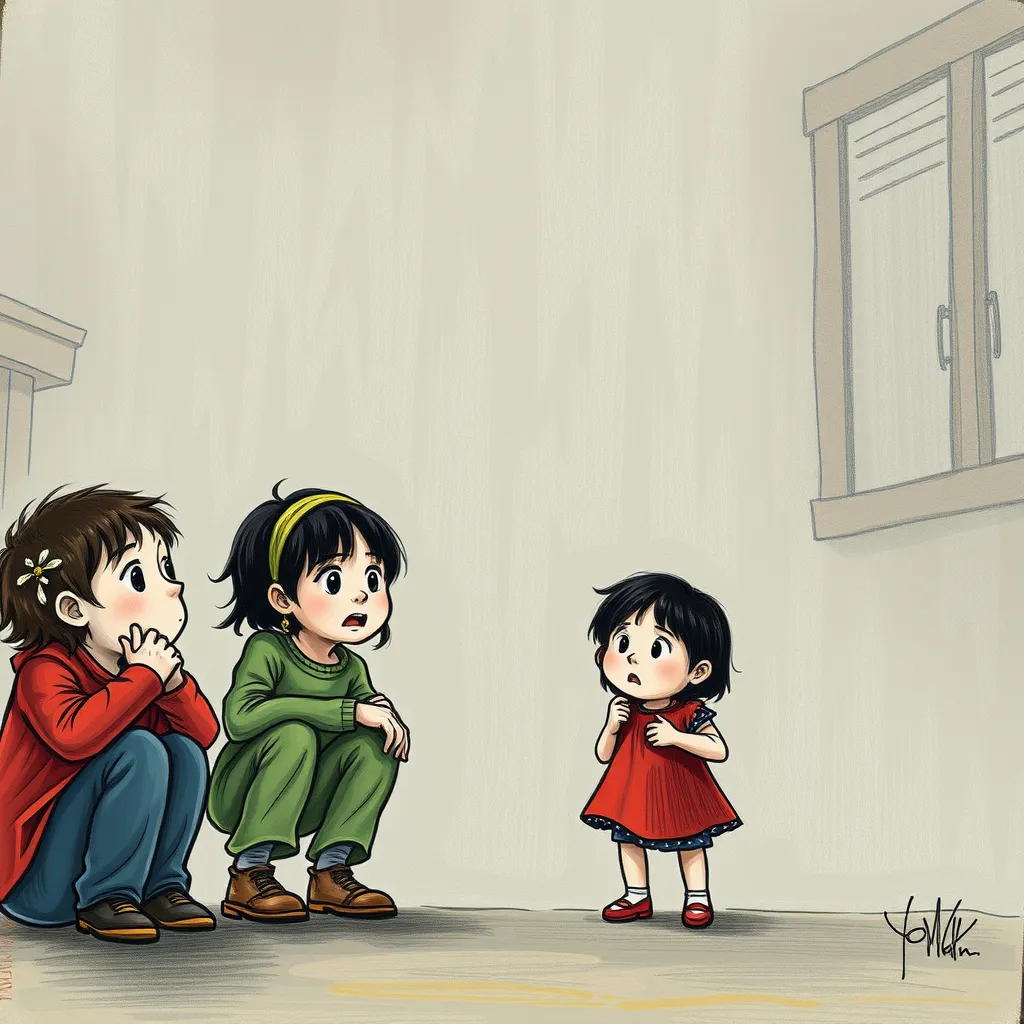Are you worried your child might fear you or your partner? It’s a concern that many parents face, and it’s important to address it promptly. This article will help you understand why children may fear their parents, how to recognize the signs, and what steps you can take to build a healthier, more trusting relationship with your child.
Table of Contents
Key Takeaways
| Issue | Impact | Solution |
|---|---|---|
| Fear of parents | This can lead to long-term mental health issues | Open communication |
| Anxiety in children | Influences a child’s perception and trust | Create a safe environment |
| Parental behavior | Influences child’s perception and trust | Practice positive parenting |
| Child’s development | Fear can hinder growth and learning | Seek professional help if needed |
Understanding Why Children Fearful of Parents

Fear is a normal emotion that everyone experiences, including children. However, when a child is consistently afraid of their parents, it can have serious consequences for their emotional and psychological development.
Discover How Baby Sleep Music Can Transform Bedtime
Common Reasons for Fear
- Harsh Discipline: Excessive yelling, physical punishment, or threats can make children fearful.
- Inconsistent Behavior: If parents are unpredictable in their moods or reactions, children may feel anxious.
- High Expectations: Unrealistic demands can make children feel they’re constantly failing.
- Lack of Emotional Support: Children who don’t feel loved or understood may develop fear.
Signs Your Child Might Be Afraid
- Avoiding eye contact
- Flinching when you move suddenly
- Reluctance to share thoughts or feelings
- Excessive people-pleasing behavior
- Physical symptoms like stomachaches or headaches
The Impact of Fear on Child Development

When children are fearful of their parents, it can affect various aspects of their growth:
- Emotional Development: Fear can lead to anxiety, depression, and low self-esteem.
- Social Skills: Children may struggle to form healthy relationships with others.
- Academic Performance: Anxiety can interfere with concentration and learning.
- Physical Health: Chronic stress can weaken the immune system.
“A child’s sense of security in their relationship with their parents forms the foundation for their overall well-being and future relationships.” – Dr. John Bowlby, Attachment Theory Pioneer
Building a Positive Parent-Child Relationship
Creating a loving, trusting relationship with your child is crucial. Here are some strategies to help:
1. Practice Positive Parenting
- Use positive reinforcement instead of punishment
- Set clear, age-appropriate boundaries
- Explain the reasons behind rules and decisions
2. Improve Communication
- Listen actively without judgment
- Encourage your child to express their feelings
- Validate their emotions, even if you disagree
3. Create a Safe Environment
- Be consistent in your behavior and reactions
- Avoid physical punishment or threats
- Show affection regularly through words and actions
4. Manage Your Own Emotions
- Practice stress-management techniques
- Seek support if you’re struggling with anger or anxiety
- Model healthy emotional expression

Addressing Specific Fears
Sometimes, children may develop specific fears related to their parents. Here’s how to handle common situations:
Fear of Punishment
- Establish clear consequences for misbehavior
- Use time-outs or privilege removal instead of physical punishment
- Always explain why a behavior was wrong and how to improve
Fear of Disappointment
- Praise effort rather than just results
- Help your child set realistic goals
- Show unconditional love, regardless of achievements
Fear of Abandonment
- Reassure your child of your love and presence
- Stick to routines and keep promises
- Explain absences or changes in advance
Seeking Professional Help
If your child’s fear persists despite your efforts, it may be time to seek professional help. A child psychologist or family therapist can provide valuable insights and strategies.
The American Academy of Child and Adolescent Psychiatry offers resources for finding qualified professionals in your area.
Building Trust Through Activities
Engaging in fun, bonding activities can help strengthen your relationship with your child. Try these ideas:
- Family Game Night: Choose cooperative games to foster teamwork.
- Cooking Together: Let your child help with simple tasks in the kitchen.
- Outdoor Adventures: Go for nature walks or play at the park.
- Reading Time: Share stories and discuss them together.
- Art Projects: Create something together, focusing on the process rather than the result.
Remember, the goal is to create positive experiences and memories that help your child feel safe and loved.
The Role of Extended Family and Community
Building a supportive network can help both you and your child:
- Grandparents and Relatives: They can provide additional love and support.
- Friends and Neighbors: Playdates and social interactions help children develop trust.
- Support Groups: Connecting with other parents can provide valuable advice and reassurance.
Frequently Asked Questions
Q: Can my child overcome their fear of me?
A: Yes, with patience, understanding, and consistent positive interactions, most children can overcome their fears and build a trusting relationship with their parents.
Q: How long does it take to rebuild trust with a fearful child?
A: The process varies for each child, but consistent effort over weeks or months usually leads to significant improvements.
Q: Should I apologize to my child for past behavior that may have caused fear?
A: Yes, a sincere apology and a commitment to change can be very healing for your relationship.
Q: What if my partner’s parenting style is causing our child to be fearful?
A: Have an open, non-judgmental discussion with your partner about your concerns. Consider family counseling if needed.
Q: Can fear of parents be genetic?
A: While anxiety can have a genetic component, fear of parents is typically learned through experiences and can be addressed through changes in parenting approach.
Conclusion
Building a relationship based on trust and understanding with your child is one of the most important tasks of parenting. By recognizing the signs of fear, addressing the underlying causes, and consistently showing love and support, you can help your child feel safe and secure in your care.
Remember, it’s never too late to improve your relationship with your child. Every positive interaction is a step towards a stronger, healthier bond. If you’re struggling, don’t hesitate to seek support from professionals or other parents. With patience and effort, you can create a loving, fear-free environment for your child to thrive.
Learn more about positive parenting techniques from the American Psychological Association











